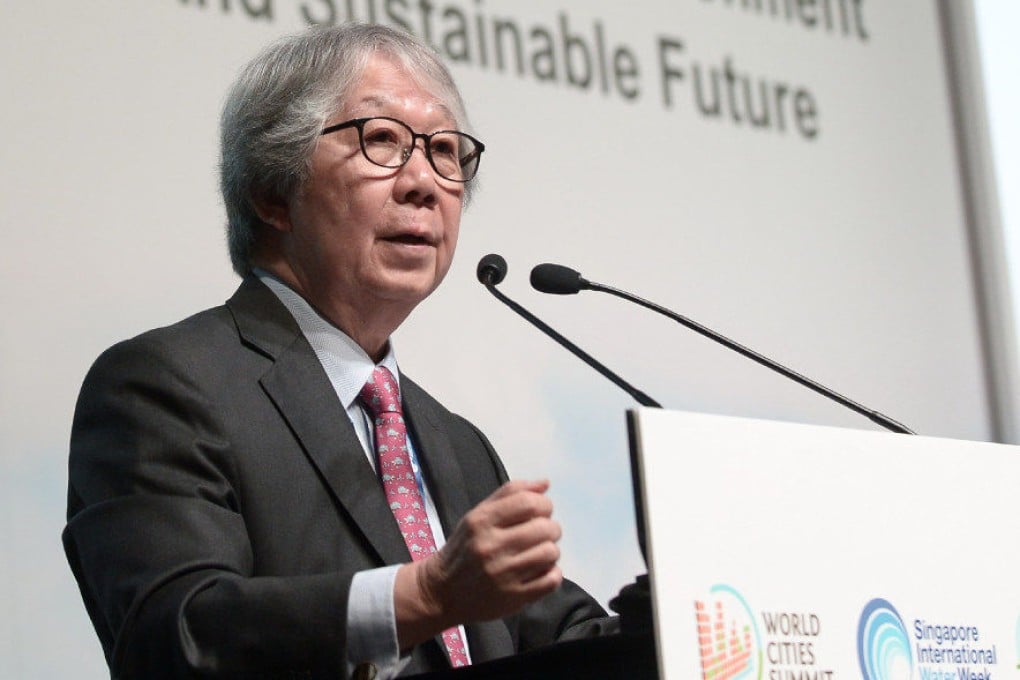- Joined
- Apr 14, 2011
- Messages
- 17,131
- Points
- 113
China’s economic miracle not over: Singapore diplomat Tommy Koh
Koh says China’s economy is set to grow between 4 per cent and 5 per cent this year, boosted by demand for EVs, renewable energy and AI
Reading Time:3 minutesWhy you can trust SCMP
1
Listen
Further Reading
Why Asia can expect ‘America First’ policy to endure post-Trump 2.0
My Take |
‘Passions run high’: Singapore parties’ walkabout row marks pre-polls tensions
As Singapore cracks down on online financial scams, will Malaysia follow suit?
Discover MORE stories on
Singapore
FOLLOW
now and stay updated with
Should Indonesia be ‘very worried’ about Malaysia-Singapore SEZ?
Hong Kong bridges China, Asean, Middle East as ties grow: HKEX official
As Singapore cracks down on online financial scams, will Malaysia follow suit?
related topics
Singapore
China's economic recovery | Asean | China GDP
Before you go
1Conversation
scmp poll

Jean Iau
Published: 5:47pm, 14 Jan 2025
China’s lagging economy is expected to bounce back, “powered by electric vehicles, clean and renewable energy and artificial intelligence”, according to Singapore’s diplomatic doyen Tommy Koh.
“I don’t think the Chinese economic miracle is over,” he said in a speech on Tuesday delivered on his behalf by Chan Heng Chee, ambassador-at-large at Singapore’s foreign affairs ministry, as Koh was ill.
His views were aired at the UOB Global Markets Economic Forum 2025 in the city state.
Businesses in China have been struggling to recover from the Covid-19 pandemic, prompting authorities to implement stimulus measures last year to bolster the world’s second-largest economy.
More measures are expected from Beijing to help lift domestic consumption, revive the property market, restore business confidence and counter demographic challenges.
China’s economic growth was expected to be about 5 per cent in 2024, President Xi Jinping said in December.
Koh said while it would take some time for China to restore its property sector, he believed the Chinese economy would rebound on the back of demand for electric vehicles, clean and renewable energy and AI, with growth in gross domestic product projected to be between 4 and 5 per cent this year.

Electric cars awaiting loading at Yantai port, Shandong province, China. Photo: AFP
On Asean’s growth outlook, Koh said the world’s fifth-largest economy would overtake Germany as the fourth-largest economy by 2030.
Calling the Association of Southeast Asian Nations a “force for peace in the Asia-Pacific and Indo-Pacific region”, Koh said: “Asean is a bright spot in a darkening world. It has kept the peace in the region for many years.”
His projections for China and the region came despite US president-elect Donald Trump threatening to impose a 60 per cent tariff on all imports from China and a universal tariff on imports from other countries of between 10 and 20 per cent. Trump will be inaugurated as the US’ 47th president next Monday.
These tariffs would have negative consequences for the world’s trading system, Koh said.
On Singapore, Koh predicted that it would ask for an exemption from US tariffs on three grounds: its free trade agreement with the US, with the Americans enjoying a trade surplus with Singapore; Singapore allowing the US Air Force and Navy to use its facilities for free; and the city state’s hosting of the first summit between Trump and North Korean leader Kim Jong-un in 2018.
“One of the good things we can say about President Trump is that he is against wars,” Koh said, noting that he ended the war against the Taliban in Afghanistan and negotiated for the safe withdrawal of US troops.
“I can therefore predict, with some confidence, that there will be no war between the US and China in 2025,” said Koh, adding that this was one of the questions that had kept him awake at night.

Chan Heng Chee, Singapore’s ambassador-at-large, speaks at an Institute of Policy Studies event in 2023. Photo: Handout
Chan, Singapore’s former ambassador to the US who secured the free trade agreement (FTA) between the two countries during her tenure, on Tuesday noted that FTAs were not foolproof as countries were allowed to push aside such pacts on the grounds of national security.
“Frankly, I think Singapore is collateral damage … The tariffs are not targeted at us. Many countries in the region will just be collateral damage,” Chan said.
With Asean benefiting from the diversification of global supply chains and factories moving out of China or Western countries, this would be seen in the US as tariff avoidance, Chan said.
“President Biden was going to fix this and tax countries in Southeast Asia, what more President Trump,” she added.
Asean countries, however, had been preparing for US tariffs and individually securing trade agreements with the global south, Chan said.
Referring to Asean’s consistent stance in supporting free and open trade, she added: “In this world of protectionism and so on, people will turn around and say, that’s a safe region, a stable region.”


